PEOPLE

Bsc, Msc, PhD
Associate Professor
GENERAL
Research Interests
I am interested in MRI technology innovations and relevant clinical studies. One of my main interests is quantitative MRI based on spin-lock techniques. The aim is to make it robust and reliable to detect certain biochemical symptoms of diseased tissue, which can be used for early detection and post-treatment monitoring of diseases. My other main interests include the development of MRI applications based on machine learning/deep learning technologies. We work closely with clinical colleagues to evaluate the diagnostic value of our technology inventions.
Education Profile
- PhD. University of Virginia, Biomedical Engineering, 2008
- MSc. Stanford University, Geophysics, 2004
- BSc. Peking University, Geophysics, 1998
TEACHING PROFILE
Since 2016, Prof. Chen has dedicated significant time to supervising MPhil and PhD students. By 2023, five PhD students have successfully obtained their doctoral degrees and one MPhil student has completed his degree. He also oversees undergraduate students from the Department of Biomedical Engineering for their Final Year Projects since 2018. Prof. Chen has been teaching the course “Biomedical Imaging” (BMEG 3320) at the Department of Biomedical Engineering since 2017. He begins teaching “AI in Radiology” for medical school students in 2024.
SERVICE PROFILE
- Annual Meeting Program committee (AMPC), the International Society for Magnetic Resonance in Medicine, 2024-2027
- Education Committee, the International Society for Magnetic Resonance in Medicine, 2023-2024
- Publication Committee, the International Society for Magnetic Resonance in Medicine, 2018-2021
- Internal PhD thesis Examiner, the Chinese university of Hong Kong
- Supervisor, Selected Study Modules (SSM) for Medicine Year 4 Students, the Chinese University of Hong Kong
- External PhD thesis Examiner, University of Hong Kong, The Hong Kong Polytechnic University
- Guest Editor, Frontiers in Physics, Quantitative Imaging in Medicine and Surgery
- Reviewer for > 26 journals
RESEARCH PROFILE
Prof. Chen and his team work on non-invasive diagnostic imaging technologies and their translation for routine clinical use. Their work involves interdisciplinary research spanning physics, artificial intelligence, engineering, and clinical medicine.
MR Physics, pulse sequence, and Quantitative Imaging
Prof. Chen’s research delves into the physics of nuclear magnetic resonance to provide tissue signals at the molecular level. A key focus area is leveraging versatile MR physics to create novel quantitative magnetic resonance imaging techniques for early disease diagnosis and treatment monitoring. His team has developed innovative methods to probe macromolecules and metabolites in tissues using non-invasive spin-lock radiofrequency approaches in clinical MRI systems. These quantitative imaging techniques are designed to be signal-to-noise efficient, robust, and reliable under complex conditions in clinical human MRI. Their work has been published in journals such as Magnetic Resonance in Medicine, NMR in Biomedicine, Journal of Magnetic Resonance, Quantitative Imaging in Medicine and Surgery, and Journal of Magnetic Resonance Imaging. Their invention has received gold medals at the 48th International Exhibition of Inventions of Geneva and 13th International Invention Fair of the Middle East.
Artificial Intelligence
Prof. Chen’s team is actively involved in artificial intelligence research for clinical radiology. They have developed cutting-edge techniques for MRI denoising, uncertainty analysis in quantitative MRI, fast MRI, and domain adaptation for unsupervised tissue segmentation. Their fast MRI work earned them third place among over 200 teams at the CMRxRecon Challenge during MICCAI 2023. Specific disease-focused applications include automatic grading and quantification of knee osteoarthritis and imaging of liver fibrosis. The team also works on data-centric AI challenges related to medical imaging data, including patient privacy, data sharing, and clinical data labeling. Their research appears in journals such as Medical Image Analysis, Applied Soft Computing, Knowledge-Based Systems, Physics in Medicine and Biology, Biomedical Signal Processing and Control, Computers in Biology and Medicine, and Computer Methods and Programs in Biomedicine.
Clinical Translation
Prof. Chen and his team collaborate closely with clinical doctors to translate their technologies into routine clinical practice. These technologies can be applied across various diseases, with a particular focus on abdomen (including liver and kidney), musculoskeletal, and neuro diseases. Their work has been featured as a cover article in the Journal of Magnetic Resonance Imaging and has been reported by news media in Hong Kong.
OTHERS
Selected Publications
1. Zhang L, Li X, Chen W*. Camp-net: consistency-aware multi-prior network for accelerated MRI reconstruction. IEEE Journal of Biomedical and Health Informatics. 2024 Dec.
2. Gao Z, Yu Z, Zhou Z, Hou J, Jiang B, Ong M, Chen W*. Orientation‐independent quantification of macromolecular proton fraction in tissues with suppression of residual dipolar coupling. NMR in Biomedicine. 2024 Aug 19:e5293. (Featured as Cover Article)
3. Li S, Zhao S, Zhang Y, Hong J*, Chen W*. Source-free unsupervised adaptive segmentation for knee joint MRI. Biomedical Signal Processing and Control. 2024 Jun 1;92:106028.
4. Yao Y, Zhong J, Zhang L, Khan S, Chen W*. CartiMorph: A framework for automated knee articular cartilage morphometrics. Medical Image Analysis. 2024 Jan 1;91:103035.
5. Qian Y, Wong VW, Wang YX, Hou J, Jiang B, Zhang X, Wong GL, Chan Q, Simon CH, Chu WC, Chen W*. Dynamic Glucose-Enhanced Imaging of the Liver Using Breath-Hold Black Blood Quantitative T1ρ MRI at 3.0 T. Journal of Magnetic Resonance Imaging. 2023 Jun
6. Hou J, Wong VW*, Qian Y, Jiang B, Chan AW, Leung HH, Wong GL, Yu SC, Chu WC, Chen W*. Detecting Early‐Stage Liver Fibrosis Using Macromolecular Proton Fraction Mapping Based on Spin‐Lock MRI: Preliminary Observations. Journal of Magnetic Resonance Imaging. 2023 Feb;57(2):485-92. (Featured as Cover Article)
7. Zhao S, Cahill DG, Siyue L, Fan X, Blu T, Griffith JF, Chen W*. Denoising of three-dimensional fast spin echo magnetic resonance images of knee joints using spatial-variant noise-relevant residual learning of convolution neural network. Computers in Biology and Medicine. 2022 Nov 9:106295.
8. Huang C, Qian Y, Yu SC, Hou J, Jiang B, Chan Q, Wong VW, Chu WC, Chen W*. Uncertainty-aware self-supervised neural network for liver T1ρ mapping with relaxation constraint. Physics in Medicine & Biology. 2022 Nov 18;67(22):225019.
9. Hong J, Zhang YD, Chen W*. Source-free unsupervised domain adaptation for cross-modality abdominal multi-organ segmentation. Knowledge-Based Systems. 2022 Jun 2:109155.
10. Hou J, Wong VW, Jiang B, Wang YX, Wong GL, Chan AW, Chu WC, Chen W*. Macromolecular proton fraction mapping based on spin‐lock magnetic resonance imaging. Magnetic Resonance in Medicine. 2020 Dec;84(6):3157-71.
View MorePatents
1. W Chen, CH Meyer, Fast automatic linear off-resonance correction method for spiral imaging, US Patent 7,642,777, Filed 21/08/2007, Date of Patent 05/01/2010
2. W Chen, CH Meyer, CT Sica, System, Method and Computer Program Product for Fast Conjugate Phase Reconstruction Based on Polynomial Approximation, US Patent 8,094,907, Filed 02/05/2008, Date of Patent 10/01/2012
3. W Chen, P Hu, CH Meyer, Method and System for Off-Resonance Correction for Non-Cartesian Parallel Imaging Reconstruction, US Patent 8,306,289, Filed 25/02/2008, Date of Patent 06/11/2012
4. W Chen, CH Meyer, Efficient Off-Resonance Correction Method and System for Spiral Imaging with Improved Accuracy, US Patent 8,238,634, Filed 25/02/2008, Date of Patent 07/08/2012
5. W Chen, P Hu, CH Meyer, Rapid Auto-Calibrated Parallel Reconstruction Using Synthetic Target Coil, US Patent 8,026,720, Filed 25/03/2009, Date of Patent 27/09/2011
6. W Chen, ACS Brau, PJ Beatty, System and Method of Parallel Imaging for Magnetic Resonance Imaging Near Metallic Implants, US Patent 8,482,279, Filed 31/03/2010, Date of Patent 09/07/2013
7. W Chen, E Han, Composite Spin Locking Pulse Sequence and Method of Using the Same, US Patent 8,618,797, Filed 23/07/2010, Date of Patent 31/12/2013
8. P Lai, W Chen, Accelerated Multispectral Data Magnetic Resonance Imaging System and Method, US Patent 9,018,951, Filed 18/04/2011, Date of Patent 28/04/2015
9. W Chen, RD Peters, ZW Slavens, KM Koch, Method and apparatus for ring artifact repair of magnetic resonance images, US Patent 9,727,953, Filed 30/06/2015, Date of Patent 08/08/2017
10. W Chen, B Jiang, Y Wang, Quantitative Magnetic Resonance Imaging Relaxometry with Suppression of Blood Signal, US Patent 10,557,906, Filed 27/04/2017, Date of Patent 11/02/2020, licensed by 1 company
11. W Chen. System and Method for Separation of Water and Fat Signals During Spin-lock Magnetic Resonance Imaging, US Patent 10,598,751, Filed 04/02/2019, Date of Patent 24/03/2020
12. K Gan, W Chen. System and Method for Patient Privacy Protection in Medical Images, US Patent 10,679,740, Filed 12/06/2018, Date of Patent 09/06/2020
13. W Chen, B Jiang. System and Method for Continuous Wave Constant Amplitude On-Resonance and Off-resonance Spin-Lock for Magnetic Resonance Imaging, US 11,137,463, USA patent, Filed 28/07/2017, Date of Patent 05/10/2021
14. W Chen, J Hou, B Jiang. System and Method for Quantitative Magnetization Transfer Imaging Based on Spin-Lock. US 11,280,867 B2, USA patent, Filed 13/05/2020, Date of Patent 22/03/2022
15. Y Yao, W Chen, System and Method for Articular Cartilage thickness Mapping and Lesion Quantification, US patent Application No. 18/095,474, Filed 10/01/2023
16. J Hou, W Chen, System and Method for Tissue Characterization Using Fast Quantitative Spin-lock Magnetic Transfer Imaging, US patent Application No. 18/101,088, Filed 24/01/2023
17. S Zhao, W Chen, System and Method for Denoising in Magnetic Resonance Imaging, US patent Application No. 18/128,193, Filed 29/03/2023
18. W Chen, B Jiang, Z Yu, Method and Apparatus for Quantitative Magnetic Resonance Imaging Using Spin-Lock Radio Frequency Trains, US patent Application No. 18/204,385, Filed 31/05/2023
19. L Zhang, W Chen, System and Method for Consistency-Awae Learnable Multi-Prior Reconstruction for Magnetic Resonance Imaging, US patent Application No. 18/604,294, Filed 13/03/2024
20. H Kang, W Chen, Deep Learning Based Accelerated MRI Reconstruction Using Mixed CNN and Vision Transformer, US patent Application No. 18/628,342, Filed 05/04/2024

